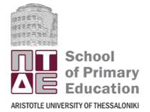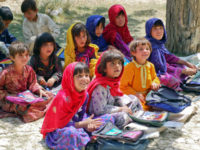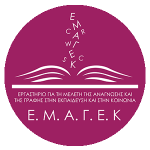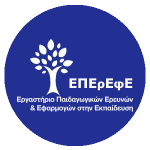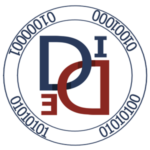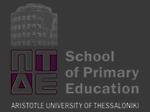The School of Primary Education aims at shaping teachers with democratic conscience, who are opposed to any racist or sexist rationale and any kind of social discrimination. It strives for moulding teachers who face positively the transformation of education towards forming a society governed by the principles of Justice, Democracy, Freedom and Equality; educators who respect the pluralism of various theoretical views and practices in education; teachers who know, understand and are able to use pedagogical, psychological, sociological and philosophical theories daily, as well as various teaching approaches in order to impart knowledge to subjects that refer to the aims, content and teaching methods of each subject; teachers with substantial humanitarian culture in the sense of respect for and understanding of nature and the various cultures, as well as their constant active participation and intervention in matters of public interest.
Requirements of the Study Programme
The Programme of Studies consists of Compulsory Practicum courses, Compulsoryelectives courses with practicum, Compulsory courses, Elective courses and courses for acquiring proficiency in a foreign language, in Information Literacy, in Academic Essay Writing, as well as in Qualitative and Quantitative Data Analysis. Overall, 240 ECTS credits distributed in 8 semesters (4 years) are required for graduation.
Analysing the distribution, 30 of these ECTS credits come from Compulsory Practicum courses, 10 from Compulsory-elective courses with practicum, 92 from Compulsory courses, 100 from Elective courses, and 8 from foreign language, Information Literacy, Academic Essay Writing, and Qualitative and Quantitative Data Analysis, with 2 ECTS credits each. If, for any reason (e.g. faculty retirements), any compulsory course stops being offered, it is automatically replaced by whichever available elective course. In this case, in order to complete the 240 ECTS credits required to obtain the degree, the number of credits earned in elective courses increases, while the number of credits in compulsory ones decreases.
More specifically:
- Compulsory Practicum courses are 5, one in the first, one in the second, one in the third and two in the fourth year offering 6 ECTS credits each. Participation in practicum, that is, attending and teaching in schools, and in all 4 years of studies, is mandatory for obtaining a degree.
- Compulsory – elective courses with practicum are offered in the final year of studies and each student must successfully pass two of them. Each Compulsory – elective course with practicum is credited with 5 ECTS.
- Compulsory courses are 23 and are called so because they have to be attended by all students. That is, it is not possible to obtain a degree without successfully passing all compulsory courses. Each Compulsory course is credited with 4 ECTS.
- Electives are called so because students have the freedom to choose from a wide variety of available courses. Each Elective course is credited with 4 ECTS and for successful completion of the degree it is necessary to take a successful examination in Elective courses corresponding to 100 ECTS. Preparation of an Undergraduate Diploma Thesis, offering 12 ECTS credits, is included in Elective courses. In addition, any courses chosen by students from other Departments of the Aristotle University are counted as Elective courses. These courses may not exceed 20 ECTS credits and should be calculated so that the total of ECTS credits per semester neither exceeds, nor is less than 30. In Elective courses are also included those aimed at Muslim students in Thrace minority, who are admitted in accordance with the law [Ministerial Decision]. These Elective courses are credited with 4 ECTS, serve as additional Compulsory courses for Muslim students and replace an equal number of Elective courses of the Curriculum.
- Successful examination in foreign language, Information Literacy, Academic Essay Writing, and Qualitative and Quantitative Data Analysis is required to obtain the degree. Some foreign language courses are offered by the School, while others are offered by the AUTh Foreign Language Center, where they are also examined.
- It is mandatory to attend the workshops whenever they constitute part of a course.
